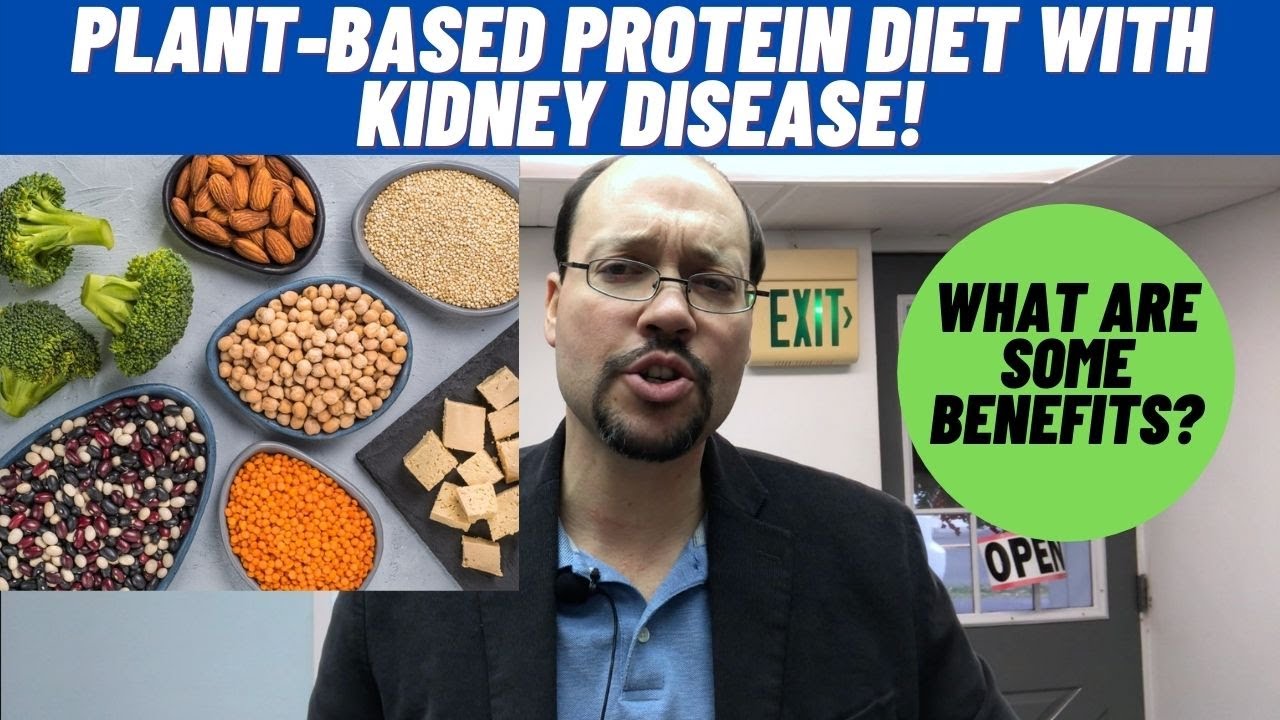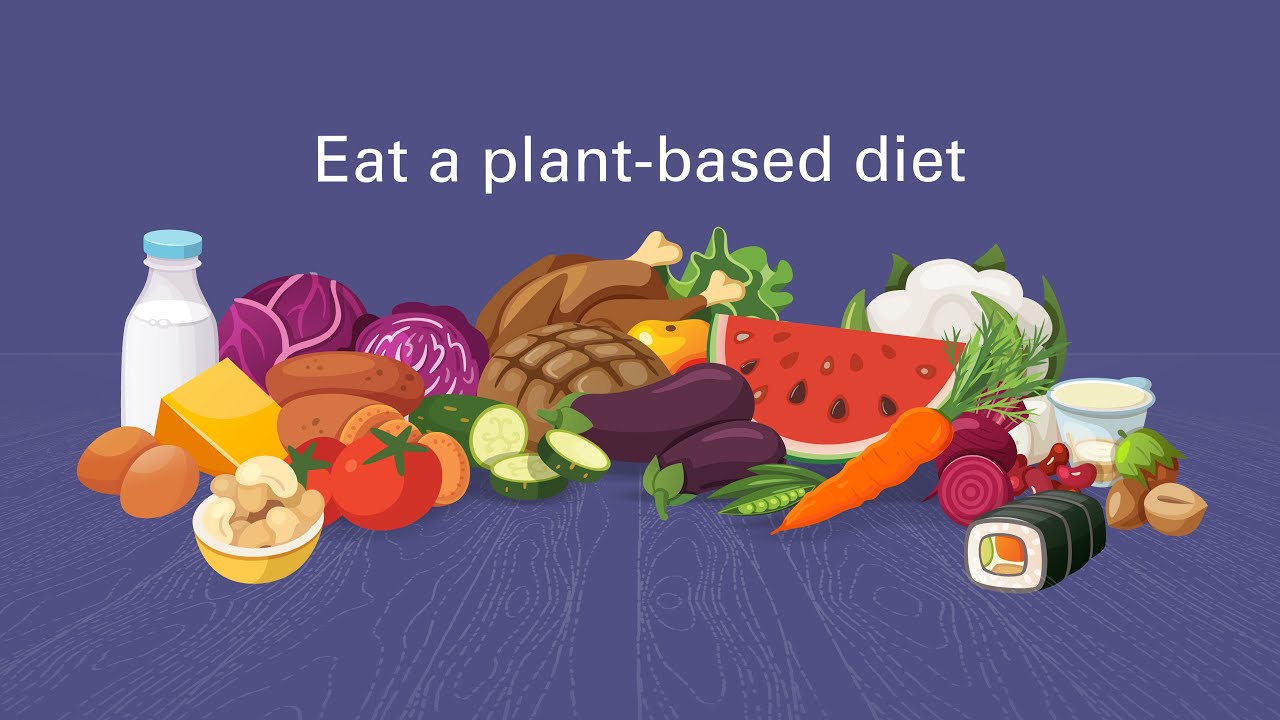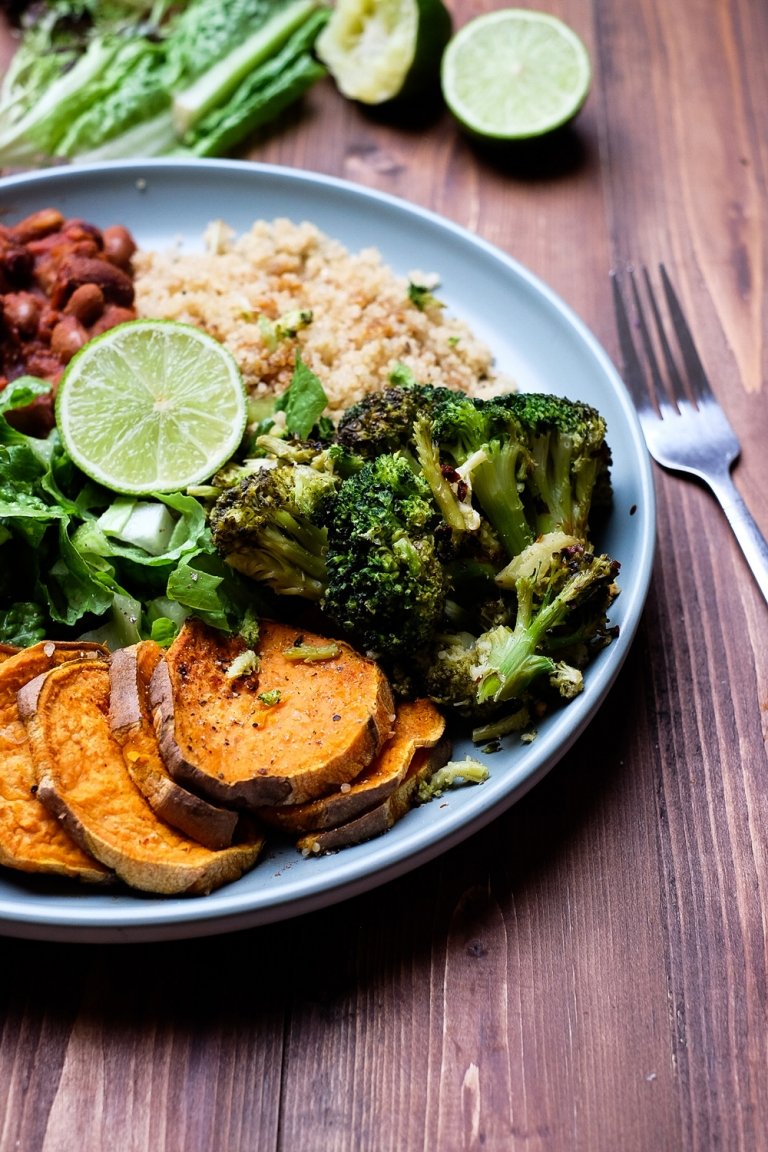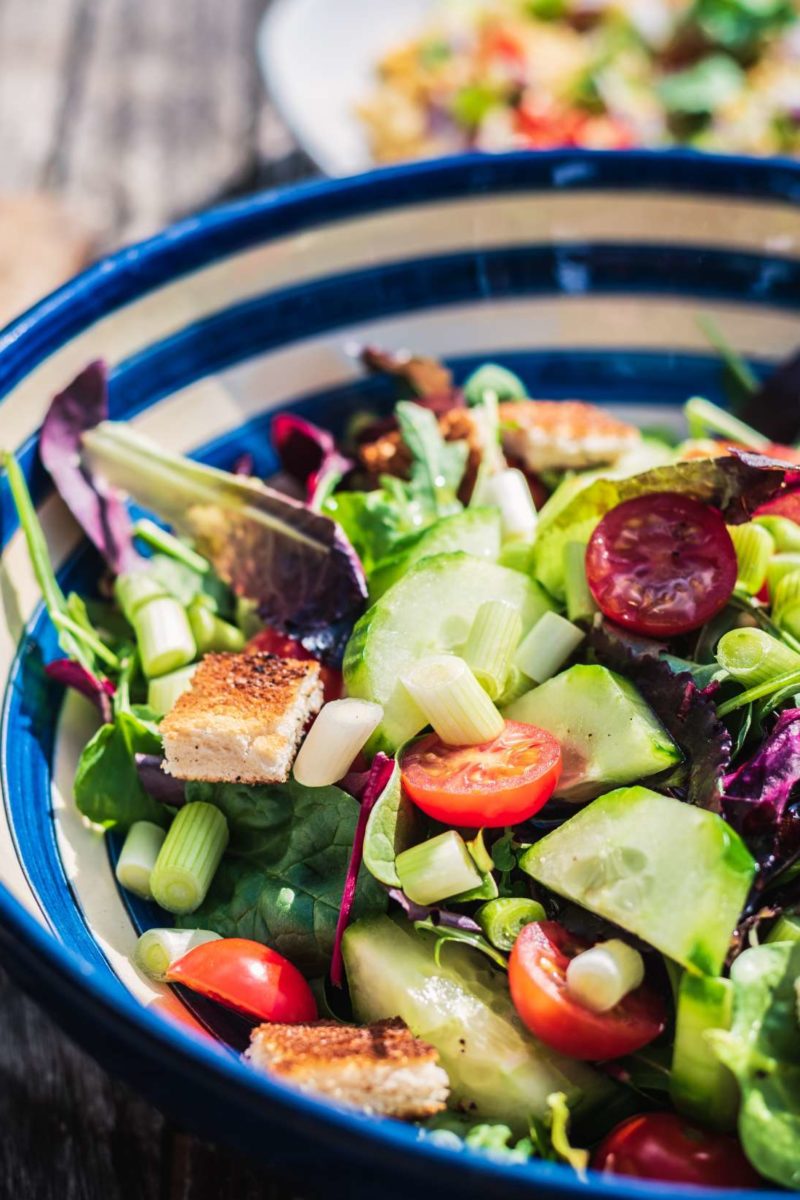The Research: The Mediterranean Diets Role In The Prevention And Delayed Onset Of Parkinsons

Consistent findings show that the Mediterranean diet may reduce the risk of many diseases, such as stroke, hypertension, heart disease, diabetes, depression, dementia, and cancer, proving its global impact on health.
What about its relationship to Parkinson’s in particular? Eating a Mediterranean diet is associated with a lower risk of Parkinson’s and later age of Parkinson’s onset. One of these studies, recently published in the journal Movement Disorders, highlights the strong correlation between eating a plant-based diet and delayed onset of Parkinson’s, perhaps because the diet reduces inflammation in the body.
The study focuses on the connection between Parkinson’s, the microbiome , and the brain. The study authors compare the microbiome to “a giant factory that produces beneficial chemicals. Your input affects how the microbiome works.” When this “input” is primarily plant-based foods, the microbiome can flourish and inflammation, suggested as a root cause of Parkinson’s, can be reduced.
The Research: The Mediterranean Diets Role In The Management And Progression Of Parkinsons
Eating a plant-based diet also provides many benefits to people living with Parkinson’s. Numerous studies have explored the eating plan’s effects on aging and cognitive function, including a systematic review published in Nutrients in 2017 that found that the Mediterranean diet “could play a major role in cognitive health and risk of Alzheimer’s disease and dementia.” Since cognitive changes are common as Parkinson’s progresses, choosing foods that benefit your brain and can slow cognitive decline is one way to influence your Parkinson’s journey positively.
The gut’s impact on Parkinson’s also plays a role in managing and possibly slowing the progression of Parkinson’s. Studies have found lower levels of Prevotella, a “good” gut bacterium, in people with Parkinson’s, along with higher levels of inflammatory bacteria; other studies have shown that eating a whole-food plant-based diet creates a gut environment where Prevotella and other healthy bacteria can flourish. The more good bacteria present, the better your overall health and your ability to live well with Parkinson’s every day.
In addition, eating a plant-based diet can help you manage multiple symptoms of Parkinson’s, including:
The Researchers Also Looked At Other Vegetables To Assess Their Effect On Parkinson’s Risk
While the highest risk reduction the researchers found was with peppers, they did find other foods that may also help lower Parkinson’s risk. According to the study, the combined consumption of peppers, tomatoes, tomato juice, and potatoes lowered the risk of Parkinson’s as well. All of these foods come from the Solanaceae family. But general consumption of vegetables not in the Solanaceae family had no effect on Parkinson’s risk, the researchers noted. This included vegetables like broccoli, carrots, and cucumbers.
Eating This Vegetable Twice A Week Can Slash Parkinson’s Risk Study Says
Nearly a million people in the U.S. have Parkinson’s disease, per the Parkinson’s Foundation, but there’s a lot we still don’t know about why people develop the condition. According to the National Institute on Aging, some cases of Parkinson’s appear to be hereditary, but most are random and not family-based. And there’s also not much known about clear risk factors for the disease, aside from age and gender, with men more likely to succumb. However, researchers have delved into ways to lower the general population’s risk for Parkinson’s, and one study has found a vegetable that could reduce your chances of developing the disease. Read on to find out what you should be adding to your diet.
RELATED: .
Peppers Contain A Chemical That May Help Fight Parkinson’s Disease

The Solanaceae family is a plant family that contains the chemical nicotine. According to the researchers for this study, dietary sources of nicotine may be what provides the protection against Parkinson’s disease. Peppers, tomatoes, and potatoes all contain small quantities of nicotine.
But Susan Searles Nielsen, PhD, the study’s lead author and a research scientist in the Department of Environmental and Occupational Health, says further research is needed to confirm this, as high quantities of nicotine can have adverse health consequences like addictiveness, poisoning, and death. Searles Nielsen says there is a chance that a similar but less toxic chemical in peppers may be equally or more protective against Parkinson’s disease than nicotine.
I Am Underweight Or Losing Too Much Weight What Should I Do
If you are underweight or have difficulty putting weight on, it may be because of the side effects of Parkinson’s medication or difficulties with chewing or swallowing.
Weight loss is caused by your body using more calories than you’re consuming. This may be due to increased movement caused by tremors or dyskinesia. It may also be due to practical problems, such as food shopping, preparation or keeping your food hot while you’re eating.
You may find the following tips useful:
- Make the most of adding extras to foods, such as extra cream, butter, oil or honey where you can. These will make the food more energy-dense and tasty.
- Try to have 3 meals a day and 2 to 3 snacks between your meals. It’s important to try to eat every 2 to 3 hours during the day.
- Instead of snacks, try having a milkshake, malted drink or smoothie. These may be used to supplement your usual diet. But, if you find you are replacing your meals with these, it is important to seek help from a dietitian.
If you are finding it difficult to maintain your weight or reach a healthy weight, your GP, specialist or Parkinson’s nurse can refer you to a dietitian.
They may recommend tailored changes to your diet and special high-calorie products that are available on prescription.
Eating Peppers Twice A Week Can Lower Your Parkinson’s Risk
A 2013 study from the University of Washington linked peppers to a reduced risk of Parkinson’s disease. The study, which was published in the Annals of Neurology journal, analyzed 490 newly diagnosed Parkinson’s patients from the UW Neurology Clinic and 644 people with no link to the disease. The researchers found that eating peppers two to four times a week was associated with a 30 percent reduced risk of developing Parkinson’s disease.
Foods Containing Nutrients That People May Be Deficient In
Some research suggests that people with Parkinson’s often have certain nutrient deficiencies, including deficiencies in iron, vitamin B1, vitamin C, zinc, and vitamin D.
The above study points out that some of these deficiencies may be associated with neuroinflammation and neurodegeneration, which are key factors in Parkinson’s.
Therefore, people with Parkinson’s may wish to consume more of the following foods.
Foods containing iron
The following foods are good sources of iron:
- liver
- certain fortified foods
Parkinsons Disease The Important Role Of The Food We Eat

Parkinson’s Disease is second only to Alzheimer’s as the most common human neurodegenerative disorder in the United States. Parkinson’s disease is a progressive disease of the nervous system that affects physical movements and over the years causes a progressive disability that can be slowed or even temporarily improved but not halted. So far no therapy has been proven to stop its progression.
Not surprisingly, diet is a major risk factor. The western, meat-centered diet, especially from meat fat, dairy and eggs, increases the risk of getting Parkinson’s, while plant fats do not increase the risk of Parkinson’s disease. In fact, consuming plant foods decreases the risk of getting Parkinson’s disease. There are two main processes where plant foods can help.
Inflammation is one part of the disease process. A plant-based diet is known to reduce the level of inflammation which may also affect the progression of Parkinson’s disease. One way plant-based diets do this is due to the amount of fiber consumed, which only comes from plant foods. Fiber helps the so-called good bacteria in our guts thrive. The good bacteria produce a substance called butyrate which is known to help reduce inflammation. Parkinson’s disease patients have, on average, lower levels of butyrate, and there have been some intriguing studies that show a connection between the bacteria in the intestine and Parkinson’s disease.
Eat Plenty Of Protein But Not With Levodopa Medications
If you’re taking a levodopa medication, your doctor may tell you to avoid protein when taking your meds. Both animal and plant protein can interfere with the absorption of levodopa medications.
But you should still eat plenty of protein. Just be strategic with the timing. “Don’t take levodopa medications with meals,” Dr. Gostkowski says. “It’s best to take it on an empty stomach — either 30 minutes before your meal or an hour after eating.”
If you get nauseous from the medication, eat a small amount of starchy food with it, such as crackers. Make sure whatever you eat with your medicine doesn’t have protein. “It’s a misunderstanding that people with Parkinson’s should avoid protein,” Dr. Gostkowski says. “You definitely need protein in your diet. Just don’t eat it when you’re taking your levodopa medication.”
Eating Peppers More Often Can Lower Your Risk Even More
You don’t have to limit yourself to eating peppers twice a week. According to the study, people who ate peppers daily had a 50 percent lower risk of developing Parkinson’s disease. Eating peppers any less than twice a week did not have a significant effect, however.
” provides further evidence of how diet can influence our susceptibility to neurological disease—specifically Parkinson’s disease,”Kelly Changizi, MD, co-director of the Center for Neuromodulation at the Mount Sinai Parkinson and Movement Disorders Center, told WebMD. She was not involved in the study.
RELATED: For more health content delivered straight to your inbox, .
Enjoying A Healthy Vegan Diet When You Have Parkinsons
Veganism in America has soared by around 600% in the past three years, which is fabulous news for those who are already hooked on this healthy, ethical way of living. If you have just been diagnosed with Parkinson’s disease, you may wonder if veganism is compatible with your recommended nutritional regime. In fact, as noted by Parkinson.org, research indicates that eating a whole-food, plant-based diet that is rich in seasonal produce and high in fiber can help soothe Parkinson’s symptoms. If you are pressed for time or you’d like to sample the full variety and delicious taste of vegan food, why not order a meal from Vegin’ Out? You probably never realized the vegan lifestyle could taste so good, or be such a powerful ally for good health.
What Gut Health Challenges do People with Parkinson’s Have?
How can a Vegan Diet Help Soothe Symptoms?
Three case-control studies have found that diets which are high in animal fat or cholesterol are linked to a substantially increased risk for Parkinson’s, yet fat obtained from plants does not appear to have the same effect. Researchers believe that a plant-based diet can slow the loss of the neurons responsible for making dopamine, thereby slowing the progression of the disease. Vegan diets can also be helpful for people with Parkinson’s because they promote vascular health, aiding in the transport of L-dopa .
The Ease of Preparing Vegan Foods
Nutrients to Watch Out For
Recently We Received A Second Letter From Randall

Above you read Randall’s first letter to Hallelujah Acres. Below is his second letter telling the results he experienced after making a simple diet change:
“Not long ago I contacted Hallelujah Acres after being diagnoses with Parkinson’s. What I received back was not encouraging except that it encouraged me to explore the potential side effects of the medications the doctor wanted me to take. The potential side-effects of those medications I learned included the destruction of part of my brain.
“Not wanting to accept the potential of suffering those medication side-effects, I refused the medications and did a 10-day juice fast followed by the Hallelujah Acres Diet and Lifestyle. I am happy to report that already almost all my Parkinson’s symptoms are gone, I am able to walk normally again, my voice is returning, and the tremors are almost gone.
“I thank God I contacted Hallelujah Acres before taking those doctor prescribed medications. Thank you Hallelujah Acres.”
Randall B.
EDITOR NOTES: Ever since Hallelujah Acres had its beginning in 1992, we have been receiving testimonies from folks who have recovered from both physical and psychological problems after simply changing their diet and lifestyle from what I call the “world’s way” to “God’s way”.
The Latest In Nutrition And Parkinsons Disease
Eating well can help you take control of your health. In fact, choosing to eat healthy foods can improve your Parkinson’s disease symptoms. And some research suggests that sound nutritional choices could have disease-modifying effects, meaning that they could potentially slow PD progression. Changing your eating habits can be a challenge, but there are many small adjustments you can make to your diet that will add up to big benefits. Learning about them is the first step.
The following article is based on the latest research and a Parkinson’s Foundation Expert Briefings about nutrition, hosted by John E. Duda, M.D., from Philadelphia VA Parkinson’s Disease Research, Education & Clinical Center .
What Does The Evidence Say About The Mind Diet
Cognition
A study published in 2015 that followed participants for an average of 4.7 years, found the MIND diet was strongly associated with slower cognitive decline1. Older adults who adhered to the diet the most showed an equivalent of being 7.5 years younger cognitively than those who followed the diet least. In this study the MIND diet had greater estimated effects than either the Mediterranean diet or the DASH diet.
Several additional studies published between 2017 and 2019 have also shown protective associations of the MIND diet on cognition2 , 3, 4, 5. Only one study published in 2018 showed no association between the MIND diet and cognitive decline in US older nurses6.
Alzheimer’s disease
Following the MIND diet has been shown to offer protection against the development of Alzheimer’s disease. A study published in 2015, that followed participants for an average of 4.5 years, found older adults who followed the MIND diet rigorously had a 53% lower risk of Alzheimer’s disease7. Researchers also observed a 35% lower risk when the diet was only moderately followed. In this study both the MIND and Mediterranean diets had comparable risks for Alzheimer’s disease but only the MIND diet was associated with lower risk when moderately followed.
Disability
Parkinson’s disease
Foods Containing Saturated Fat And Cholesterol
Some studies suggest that dietary fat intake may increase the risk of Parkinson’s.
Although having a higher intake of cholesterol can elevate a person’s Parkinson’s risk, having a higher intake of polyunsaturated fatty acids may reduce the risk.
Therefore, a person with Parkinson’s may wish to reduce their intake of cholesterol to help control the symptoms of the condition. They may also wish to reduce the amount of saturated fat in their diet.
However, further studies are required to explore the link between dietary fat and Parkinson’s.
When Should I Take My Parkinsons Medication

When you take your Parkinson’s medication should always be discussed with your GP, specialist or Parkinson’s nurse.
Some people with Parkinson’s may feel sick after taking medication, especially if they take it on an empty stomach.
Having a snack, such as a plain cracker or biscuit, at the same time as taking your medication can help ease this side effect. Or you may find taking medication with plenty of water can help to reduce nausea.
Your GP can also prescribe anti-sickness tablets if you do feel sick after taking your medication.
Talk to your GP, specialist or Parkinson’s nurse if you have difficulty swallowing your medication. It may help to take your medication with a cold drink, such as water, squash or fruit juice, or with yoghurt.
Can The Mediterranean Diet Help Parkinsons 10/2020Amy Neill, DietitianDiet types0
The Mediterranean diet has been linked to a number of health benefits, including lower incidence of cardiovascular disease, slower decline in physical function in older adults and reduced risk of developing mild cognitive impairment and Alzheimer’s. But what about Parkinson’s? Is there a potential place for the Mediterranean diet and could following this plant-based pattern of eating improve your Parkinson’s symptoms or slow the progression of your condition? Before looking at the evidence, let’s first take a closer look at the Mediterranean diet.
The Mediterranean Diet And Parkinsons Risk
Several studies have shown an association between Parkinson’s risk and the Mediterranean dietary pattern.
Study – Gao et al.
A study published in 2007 which followed 2 large groups, the Health Professionals Follow-Up Study and the Nurses’ Health Study, showed an inverse association between adherence to a Mediterranean diet and risk of Parkinson’s. Participants who adhered to a Mediterranean diet the most showed a 25% reduction in the risk of Parkinson’s compared to those who adhered to the diet the least.
Study – Alcalay et al.
A study published in 2012 showed lower adherence to a Mediterranean diet was associated with Parkinson’s. In this study, higher adherence to the diet was associated with reduced odds of having Parkinson’s and for each additional Mediterranean diet scoring point, the odds of having Parkinson’s were lower by 14%. Among Parkinson’s participants, greater diet adherence was associated with later Parkinson’s disease age-at-onset. This finding suggests that dietary behaviour may be associated with the age-at-onset of Parkinson’s.
Study – Maraki et al.
Study – Lin et al.
Incidence And Progression Of Parkinsonism
Study – Agarwal et al.
A study published in 2018 examined the relationship of dietary patterns with the incidence and progression of parkinsonism in older adults. 706 older adults participated in this study which involved annual assessments for the presence of four parkinsonian signs . Participants were followed for an average of 4.6 years. While it was the MIND diet that was significantly associated with lower rates of developing parkinsonism, and with slower progression of parkinsonian signs, researchers observed more moderate protective associations for the Mediterranean diet.
What Foods Are Eaten As Part Of The Diet

The Mediterranean diet emphasises eating primarily plant-based foods including a wide range of colourful fruits and vegetables, wholegrains, legumes, nuts, seeds and extra virgin olive oil. The dietary pattern also encourages intake of fish and seafood and low to moderate amounts of poultry, eggs, red meat and dairy. Herbs and spices are encouraged to add flavour to foods with the option of drinking a small amount of wine during a meal. Overall, the Mediterranean diet is high in unsaturated fats, antioxidants and fibre.
Can The Hallelujah Diet Help Parkinsons
“Dear Rev. Malkmus, Have you treated anyone with Parkinson’s disease with the Hallelujah Acres Diet, and if so have you had any success?”
Randall B.
EDITOR RESPONDS: First let me say that we here at Hallelujah Acres do not treat people for a medical condition, nor have we ever done so. We are simply a Christian ministry that teaches health from a biblical perspective.
The diet that we teach is the very diet God told the first humans to eat in Genesis 1:29. It is this same diet that in most instances provides the body with the nutrients needed for the body to literally heal itself.
With regard to Parkinson’s we have not had a lot of positive testimonies, though we have had a few reporting a slowing of the progression of the disease and found that they no longer experienced tremors.
All sources of artificial sugars such as aspartame must be eliminated. They lead to destruction of brain cells.
It is also extremely important for an individual with Parkinson’s to look for any metals in their mouth and other areas of oral pathology such as root canals or tooth extraction sites that may have cavitations. Oral pathology can impair the healing process and lead to neurological symptoms. One should be evaluated for heavy metal toxicity as well.
Can Eating Well Alter The Course Of Pd
Scientists know a lot about the molecular changes that underlie Parkinson’s. You may have heard of alpha-synuclein, the protein that forms clumps in brain cells, oxidative stress, mitochondrial dysfunction, and inflammation. The search is intense for therapies that can stop or reverse these processes. Can nutrition or dietary choices do anything to change them or alter the course of PD?
Some laboratory and animal research suggest that diet could have an effect, especially plant-based foods like fruits, vegetables, legumes, nuts and seeds. Every plant-based food contains hundreds of chemicals called phytochemicals. These are not nutrients, but substances that may, alone or in combination, affect many of the processes thought to be involved in PD including oxidation, chronic inflammation, protein aggregation and mitochondrial dysfunction.
Phytochemicals have not been proven to change disease progression in people with PD, but neither is there typically any harm in eating a diet that includes whole, unprocessed plants. This diet has proven benefits for preventing heart and vascular disease and can reduce PD symptoms, like constipation and risk of cognitive change.
Want More Practical Articles Like This
You can find much more in?our?Every Victory Counts®?manual.?It’s packed with up-to-date information about everything Parkinson’s, plus an expanded worksheets and resources section to help you put what you’ve learned into action.?Request your free copy of the?Every Victory Counts manual by clicking the button below.
Thank you to our 2021 Peak Partners,? Adamas, Amneal, Kyowa Kirin, and Sunovion; Every Victory Counts Gold Sponsor AbbVie Grants; Every Victory Counts Silver Sponsor Lundbeck; and Every Victory Counts Bronze Sponsors Supernus and Theravance for helping us make printing, distributing, and shipping the Every Victory Counts manual possible.
What Foods Should I Eat Or Limit/avoid

The MIND diet has 15 dietary components, including 10 brain-healthy food groups which should be consumed. Regular consumption of berries and green leafy vegetables are two specified food groups that are incorporated into this dietary pattern.
10 brain-healthy food groups
- Green leafy vegetables – eat at least 1 serving per day e.g. Spinach, Kale, Bok Choy, Collard greens, Romaine lettuce, Rocket, Endive.
- Other vegetables – eat at least 1 serving of another vegetable per day.
- Berries – eat 2 or more servings per week e.g. blueberries, strawberries, blackberries, raspberries.
- Nuts – eat 5 or more servings per week.
- Whole grains – eat 3 or more servings per day e.g. wholegrain bread, brown rice, wholemeal pasta, oats.
- Fish – eat 1 or more servings per week e.g. fatty fish high in omega 3 such as Salmon and Sardines. Avoid fried fish.
- Beans– eat 3 or more servings per week e.g. Black beans, Cannellini beans, Lima beans, Red kidney beans.
- Poultry – eat 2 or more servings per week e.g. chicken or turkey. Avoid fried poultry.
- Olive oil – use olive oil as your main cooking oil. Choose extra virgin olive oil.
- Wine – no more than 1 standard drink per day e.g. red wine.
The diet also includes 5 unhealthy food groups which should be limited or avoided due to their high saturated and trans fat content.
5 unhealthy food groups
Treating Parkinsons Disease With Diet
Caffeine consumption appears to help prevent Parkinson’s, but what if you already have the condition? A recent study found that giving folks the equivalent of about two cups of coffee a day worth of caffeine significantly improved symptoms of the disease. Of course, there’s only so much you can charge for coffee, so drug companies took caffeine and added a few side groups so they could patent it into new drugs . These drugs appear to work no better than plain caffeine, which is dramatically cheaper and probably safer. You can see more of the risks and benefits of coffee and caffeine in Coffee and Cancer and What About the Caffeine?
Similarly, certain plants, such as berries, and plant-based diets in general may help prevent Parkinson’s. See my last post Avoiding Dairy to Prevent Parkinson’s. This may be partially because of pollutants that magnify up the food chain into the meat and dairy supply, but it could also be from the protective phytonutrients in healthy plant foods. For example, as you can see in my 3-min video Treating Parkinson’s Disease With Diet, I profile a case report in which a dietician struck with Parkinson’s was able to successfully clear most of her symptoms with a plant-based diet rich in strawberries, whole wheat, and brown rice. These are rich sources of two particular phytonutrients, N-hexacosanol and fisetin, but there hadn’t been a formal interventional trial published, until now.
More on what fiber can do for us in videos such as:
Parkinsons Disease And The Vegan Diet Photo by Flickr user sweetonveg
Parkinson’s is a devastating, progressive disease of the muscular and nervous system. The study of Parkinson’s disease is a priority for many scientists concerned about human health. In debates about animal experimentation, the study of PD is often presented as one way that animal experiments might one day benefit humans .
The results of the study may be tempered for some advocates by the fact that this research was carried out using both in vitro and animal models. So, while the results are encouraging and point to the benefits of a vegan diet – and may actually turn the idea that PD research needs to be conducted with animals on its head – the fact that this study used animals in the first place is an unfortunate fact.
External Link:
What Can I Do To Help With Swallowing
Make sure you are comfortable at meal times. The following suggestions may help make it easier to eat:
- Take your time and eat in a comfortable, quiet place.
- If you feel you are taking too long and food is getting cold, consider eating smaller, more frequent meals and snacks, or food that is easier to eat.
- You can buy heated plates to keep food warm for longer or consider serving smaller portions so that a second portion can be kept warm or reheated if it’s safe to do so.
- Posture is important to trigger a good swallow. Try eating sitting upright in your chair.
- Try planning your meals for when your medication is working. Avoid trying to eat large meals when you are ‘off’.
- If you wear dentures try to ensure they fit comfortably. Ask for a review by your dentist if you are concerned.
- Try to eat when you are less tired, this may mean moving your main meal to lunchtime rather than in the evening.
How Can Protein Affect My Medication

In some people, protein may interfere with the effects of their levodopa medication. Therefore it’s generally advised that you should take your Parkinson’s medication at least 30 to 45 minutes before meals.
Some people with Parkinson’s have told us that their medication is less affected by some milk alternatives, such as rice milk, although there is no actual evidence to support this.
- reduce the amount of protein you eat earlier in the day. This may help to increase the response your body has to the medication and avoid unpredictable motor fluctuations
- eat your main protein meal in the evening, as a slower response to medication may not be as
- important as at other times of the day
- If you do wish to review the timing of your protein intake, you should talk to your GP, specialist or
- Parkinson’s nurse, or ask to see a registered dietitian.
You shouldn’t stop eating protein altogether as it’s vital to help your body renew itself and fight infection. Reducing protein may cause dangerous weight loss.
We can’t list all the possible side effects of all Parkinson’s drugs here, but some Parkinson’s medication may cause:
- nausea and vomiting
- dry mouth
- tiredness
These side effects may interfere with your appetite, which may lead to you eating and drinking less. A dietitian may be able to advise you on how to manage these symptoms, especially if they affect your normal appetite.
Add Medication For A Winning Combo
Diet and exercise are important for managing PD, but don’t forget about medications. Take them regularly and exactly as your doctor prescribes.
If you tend to forget your medication, set an alarm to remind you. You can also use a pillbox that’s labeled with days and times of day. “Take your meds on a set schedule, don’t skip doses and don’t double dose,” says Dr. Gostkowski. “When you’re diligent about taking your medications and following a healthy lifestyle, you’ll feel your best.”
Plant Based Diet Have You Tried It
- This topic has 11 replies, 2 voices, and was last updated 1 year, 8 months ago by
- Jean MellanoParticipant
Plant based diets are sometimes recommended to ease symptoms and/or slow progression. Have you tried this kind of diet? If so, so you think it has helped you?
- November 14, 2019 at 9:46 am#16401Jo S.Participant
I’ve been plant-based for almost four decades. Yes, I do believe it has helped me. I have had symptoms for a very long time, and I think I would have been a lot worse off by the time I was diagnosed if I hadn’t been vegan. That said, I don’t believe being vegan will cure PD , but I do think it can help to slow progression as long as the diet is centered around whole plant-based foods and not processed junk.
- November 14, 2019 at 3:21 pm#16427Jean MellanoParticipant
plant based diets cant hurt us, are good for animal welfare and good for the planet. have you seen The Game Changers on Netflix? https://gamechangersmovie.com/ i highly recommend it.
Hi, Jean. I haven’t seen The Game Changers yet . I’ve been vegan for so long and written many books on the topic over the decades and seen so many films over the years, that I generally don’t want or need to view any additional ones. For my husband and me, it’s sort of a been-there-done-that feeling when it comes to films about veganism and animal rights.
